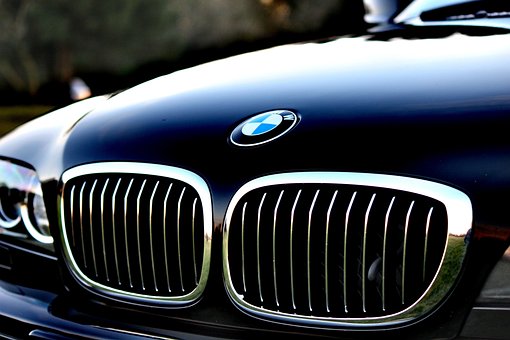The lifespan of a BMW engine will depend on a number of factors, including the age and model of your car, how well you maintain it, and how often you drive. That said, there are some general guidelines that BMW owners can follow to help prolong the life of their engines. In this blog post, we will discuss what those guidelines are and offer some tips for keeping your engine in good condition.

How Long Do BMW Engines Last On Average And What Factors Influence Their Lifespan?
BMW cars are some of the most reliable cars. Their engines are also reliable on the market, with an average lifespan of around 150,000 miles. However, there are a number of factors that can influence how long a BMW engine will last. For example, lower-quality oil or coolant can cause premature wear and tear to vehicles, while driving habits can also have an impact. Those who frequently drive in stop-and-go traffic or make short journeys are more likely to see their engines wear out sooner. In contrast, those who drive mostly on highways and avoid excessive idling should be able to get more miles out of their BMWs. With proper care and regular maintenance, it is not uncommon for BMW engines to reach 200,000 miles or more.

What Are The Most Common Problems With BMW Engines And How Can They Be Avoided?
BMW is a German car manufacturer that produces luxury cars. The company is known for its performance and style, but BMWs can also be expensive to maintain. The most common problems with BMW engines include:
Oil Leaks
One of the most common problems with BMW engines is oil leaks. These leaks can occur in the valve cover gasket, oil filter housing gasket, or oil pan gasket. Oil leaks can cause engine damage and should be repaired as soon as possible.
Coolant Leaks
Another common BMW engine problem is coolant leaks. These leaks can occur in the radiator, water pump, or thermostat housing. Coolant leaks can lead to engine overheating and should be repaired as soon as possible.
To avoid these common BMW engine problems, it is important to regularly check for leaks and have them repaired promptly. Regular maintenance can also help to prevent these problems from occurring in the first place.

How Much Does It Cost To Repair Or Replace A BMW Engine?
Assuming you need a complete engine replacement for your BMW, the car costs will vary depending on the model of BMW you own. On average, it will cost between $4,000 and $8,000 to get a new BMW engine. But keep in mind that this is just an average, so your particular repair could cost more or less than this. For example, if you own a BMW 3 Series from the early 2000s, you can expect to pay closer to $4,000 for a new engine. But if you own a newer BMW 7 Series, you could be looking at a bill upwards of $8,000. Other factors that will affect the cost of your engine replacement include the labor costs at your chosen repair shop and whether or not you need any other repairs at the same time (such as transmission work). All in all, it’s important to be prepared to spend a decent chunk of change if you need a new engine for your BMW.

At some point, every owner of BMW models will face the prospect of engine repair or replacement. While this can be a costly proposition, it is important to keep in mind that a BMW is a high-performance vehicle with a sophisticated engine. As such, it is important to choose a reputable and experienced mechanic who specializes in BMWs. When it comes to engine repair, there are two main options: repair or replacement.
Replace
If the damage is extensive, it may be necessary to replace the entire engine.
Repair
However, if the damage is limited to certain components, it may be possible to simply repair those components.
The cost of engine repair or replacement of BMW vehicles will vary depending on the extent of the damage and the chosen course of action. However, regardless of the cost, repairs or replacements should only be carried out by a nearby BMW dealership.

Some Tips For Prolonging The Life Of Your BMW Engine:
- One of the best ways to extend the life of your BMW engine is to keep it properly serviced. This means changing the oil and filter according to the manufacturer’s recommendations, as well as checking and topping off all other fluids.
- Another most important thing you can do to prolong the life of your BMW engine is to regularly change the oil. Fresh oil helps to lubricate the engine and prevents the build-up of harmful deposits.
- It’s also important to have the engine regularly tuned and to keep an eye on the air filter.
- In addition, it’s a good idea to avoid running the engine at high speeds or under heavy loads unnecessarily. If you take good care of your BMW engine, it will reward you with years of faithful service.
- It is important to check the levels of coolant and brake fluid on a regular basis and top them up as needed.
- It is also a good idea to have the engine serviced regularly by a qualified mechanic. This will help to identify any potential problems early on and prevent them from becoming serious.
By following these simple tips, you can help to extend the life of your BMW engine and keep it running smoothly for years to come.

FAQs:
1) How much does it cost to replace a BMW engine?
The cost of replacing a BMW engine will vary depending on the model of BMW you own. On average, it will cost you between $4000 and $8000 to get a new BMW engine.
2) How long do BMW engines last?
BMW engines are designed to last for many years. However, the exact lifespan will depend on a number of factors, such as how well the engine is maintained and whether or not it is used for racing.
3) How can you prolong the life of a BMW engine?
Some tips for prolonging the life of a BMW engine include regularly changing the oil and keeping the engine serviced by a qualified mechanic. Additionally, it is important to avoid running the engine at high speeds or under heavy loads unnecessarily.
4) How often should I change the oil in my BMW?
You should change the oil in your BMW every 5000 miles or so, depending on the model of BMW you own. Check your owner’s manual for more specific recommendations.
Wrapping Up: How Long do BMW Engines Last?
From all of this, we can see that BMW engines are designed to last a long time. However, they are not immune to problems and will eventually need repairs or replacement. The cost of these repairs can be significant, but it is important to remember that BMWs are high-performance vehicles with sophisticated engines. As such, they should only be repaired or replaced by a qualified BMW specialist. By following some simple tips and maintaining your BMW engine properly, you can help to prolong its life and keep it running smoothly for years to come.
Related Posts:
